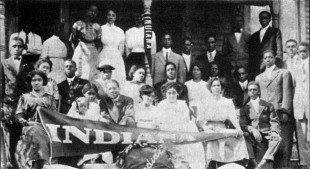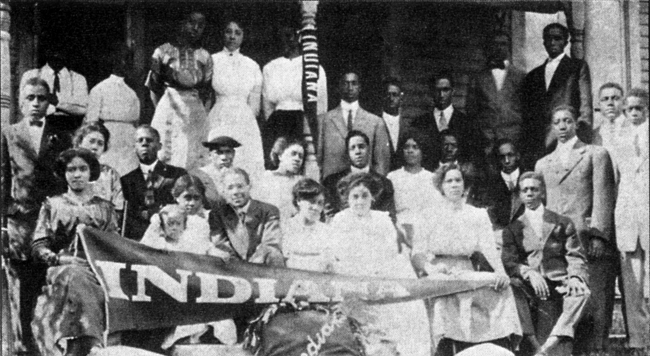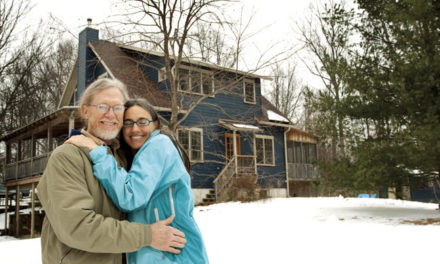A drawback to social media that most people tend to agree upon is that bad information can be disseminated quickly and once it’s out there, it’s hard to rein in.
A CNN iReport this week from a “citizen journalist” writing about the racial tensions in Ferguson, Missouri, incorrectly alleged that Missouri Highway Patrol Captain Ron Johnson flashed a gang sign that was captured in a photograph. Outrage spread throughout social media, such as Twitter, and mainstream news outlets. But what really happened was that Johnson simply displayed the brotherhood hand signal signifying his membership in Kappa Alpha Psi, the historically black fraternity founded at Indiana University in 1911.
For the last few years, the national fraternity has been emphasizing voter registration initiatives, and, reportedly, Kappa Alpha Psi members have been on the ground in Ferguson, helping local residents register voters. Bloom carried a story on the fraternity’s Bloomington roots, and 100th anniversary, in this story from our June/July 2011 issue. —Mike Leonard
Kappa Alpha Psi Fraternity to Celebrate 100 Years
BY ELISABETH ANDREWS
Before a new brother can join the ranks of the international 150,000-strong Kappa Alpha Psi fraternity, he first needs to learn a piece of Bloomington history. Each inductee receives a book recounting the story of Elder Watson Diggs, an IU student who founded one of the nation’s first historically African-American fraternities in downtown Bloomington 100 years ago. This summer, thousands of Kappa Alpha Psi brothers will see this lore brought to life when they pilgrimage to Bloomington in celebration of their centennial year.

The first Kappa house party in 1911. Courtesy photo
“We’re excited to come home to the birthplace of Kappa Alpha Psi,” says the fraternity’s Grand Polemarch Dwayne Murray, a Louisiana attorney. “We want to thank the city of Bloomington for being there for ten young men who one hundred years ago formed an organization that has stood the test of time.”
That ten African-American men were even attending Indiana University in 1911 defied the odds in segregated turn-of-the-century society. Much of the university’s resources were off limits to African-American students, including housing, swimming pools, and the Indiana Memorial Union dining facilities. Nonetheless, the founding members committed to the motto, “Achievement in Every Field of Human Endeavor.”
Their early meetings were held in the Kirkwood Avenue home of Mollie Spaulding, where several members were lodgers. “I believe she was the only African American who owned property in Bloomington at the time,” says Richard Lee Snow, Kappa Alpha Psi executive director.
In memory of that meeting place, the fraternity will be dedicating a bench in People’s Park on the corner of Kirkwood and Dunn Street in a ceremony at noon on July 7. The gathering is open to the public, and traffic will be blocked off for the occasion.
Pilgrims on the “Kappa Trail” will visit a number of other Bloomington sites that feature in their history, including Jordan Creek on the IU campus. Murray explains that Kappa Alpha Psi brother George Taliaferro, who became the first African-American football player drafted by an NFL team, famously swam in the creek to protest the prohibition against African-American students using university pools.
Other notable IU Kappa Alpha Psi members include broadcaster Tavis Smiley; William G. Mays, founder and CEO of Mays Chemical Company; and Dennis Hayes, who served as interim president of the NAACP.
For more information on the fraternity and the festivities, visit the Kappa Alpha Psi’s website.
















